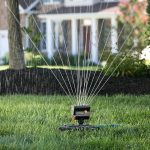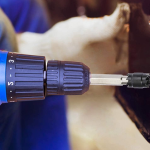A reliable portable generator is the single most important piece of equipment for extended off-grid trips, providing peace of mind and essential power for all your devices.
Finding the right power source is crucial for a comfortable and safe adventure, which is why we’ve assembled a list of the top 10 power generators on the market. These devices offer clean, stable power necessary for charging sensitive electronics like laptops and phones, while also running small appliances. They come in two main types: traditional gasoline inverters (quiet and efficient) and solar-powered stations (clean and silent). This guide will help you understand the key differences, focusing on factors like wattage output, noise level, and fuel type to ensure you choose a model that perfectly matches your needs.
Ultimately, whether you need to power a small refrigerator, a CPAP machine, or simply keep your gear charged, the perfect generator is out there. We’ve meticulously reviewed both fuel-powered and battery-based units to highlight their real-world usability and benefits for campers and RV owners. In addition, we have included various models that cover different budgets and power requirements. Next, let’s explore the ten best models in our comprehensive review section.
Top 5 Best Portable Generators for Camping
10 Best Portable Generators for Camping Review
1. Honda 664240 EU2200i 2200 Watt Portable Inverter Generator
The Honda EU2200i is the gold standard for small, fuel-efficient power, perfectly suited for campers, tailgaters, and job site users requiring super quiet operation. This gasoline-powered inverter generator is built to handle a wide variety of loads, delivering a clean, stable 2,200 starting watts of power. It’s an ideal choice for running sensitive electronics, small appliances, and for supplemental RV power, all while maintaining a noise level quieter than a normal conversation.
Its exclusive Eco-Throttle System is the key to its stellar performance, allowing the unit to run for up to 9.6 hours on a single tank, making it excellent for overnight applications. The inverter technology ensures the power output is as reliable as your home outlet. However, its modest output means you might not run a high-draw RV air conditioner, but it can be paralleled with a second unit to double the power to 4,400 watts. This flexibility, coupled with the integrated CO-Minder safety feature, makes it a premium, long-term investment.
Verdict: This unit is for the discerning buyer who values uncompromising reliability and low noise above all else. Its slightly higher price tag reflects Honda’s superior engineering and longevity. If you need powerful yet quiet gasoline operation for long-duration camping, this remains the undisputed best choice.
| PROS | CONS |
|---|---|
|
|
2. EF ECOFLOW Portable Power Station DELTA 2, 1024Wh LiFePO4
The EcoFlow DELTA 2 is a state-of-the-art solar generator designed for those seeking clean, silent power for camping, RVs, and home backup. This unit features a large 1024Wh capacity and a huge 1800W AC output, making it capable of powering up to 90% of common appliances without the noise or fumes of a gas model. It truly shines with its 7X faster AC charging, allowing a 0-80% charge in just 50 minutes, which is a major convenience when preparing for a trip.
Its core strength lies in its LiFePO4 battery chemistry, providing a 3000+ cycle life, ensuring it is built to last for years. The capacity is also expandable up to 3kWh with extra batteries, offering incredible versatility. While its high output is impressive, the unit’s solar charging input is capped at 500W, meaning you must purchase solar panels separately. Nevertheless, its blend of portability and sheer power output easily competes with traditional outdoor generators, all while being emission-free.
Verdict: This is the definitive choice for the eco-conscious camper or RVer who needs major appliance power and values speed. The fast charging and long-lasting LFP battery make it a reliable and smart investment, perfect for extended off-grid living where noise is a concern.
| PROS | CONS |
|---|---|
|
|
3. WEN 3600-Watt Portable Inverter Generator, RV-Ready, Quiet and Lightweight
The WEN 56360i strikes an impressive balance between power and portability, making it a fantastic option for mid-range camping and RV needs. Its 149cc engine delivers 3600 surge watts and 2900 rated watts—enough power to comfortably run an air conditioner or multiple devices simultaneously. Crucially, the unit is incredibly lightweight for its power level, weighing only 46 pounds, which ensures easy transport to and from the campsite.
As an inverter generator, it produces clean power (less than 1.2% THD), safeguarding your sensitive devices like tablets and phones. A notable feature is the fuel shutoff function, which maximizes the carburetor’s lifespan by using up residual fuel before shutting down. While it’s marketed as quiet, some reviewers noted it is slightly louder under heavy load than the premium Honda model. Nevertheless, the inclusion of a dedicated TT-30R RV receptacle and multiple USB ports makes it a highly versatile and budget-friendly power solution.
Verdict: This WEN model is a best-value option for RV and tent campers who need substantial power without the bulk or price of heavier units. Its combination of high wattage and low weight makes it one of the most practical options for weekend trips and extended stays.
| PROS | CONS |
|---|---|
|
|
4. Jackery Explorer 1000 v2 Portable Power Station, 1070Wh LiFePO4 Battery
The Jackery Explorer 1000 v2 builds on a legacy of outdoor reliability, delivering 1500W of stable AC output and a massive 1070Wh capacity in a remarkably lightweight package (23.8 lbs). This is the ideal solar generator for road trips and emergencies where portability is non-negotiable. Equipped with a durable LFP battery, it is rated for a 10-year lifespan, retaining over 70% capacity even after 4,000 charge cycles, providing excellent long-term value.
A major improvement is the one-hour fast charging capability via the Jackery App’s emergency mode, allowing you to rapidly prepare for an unexpected outage or departure. It is tailored for versatility, featuring three pure sine wave AC ports and PD 100W fast USB-C charging. However, a minor drawback is the limitation to only Jackery solar panels for solar charging. Overall, the Smart App Control is a great feature, enabling quiet overnight charging and energy efficiency mode, enhancing the user experience significantly.
Verdict: Choose the Jackery Explorer 1000 v2 if you need a lightweight, rugged, and silent power solution with excellent longevity. It’s perfect for small cabins, extended tent camping, and users who prioritize fast charging and ease of use over high-end surge wattage.
| PROS | CONS |
|---|---|
|
|
5. Anker SOLIX C1000 Gen 2 Portable Power Station, 2,000W Solar Generator
The Anker SOLIX C1000 Gen 2 is the speed champion of portable power stations, boasting a revolutionary 49-minute UltraFast Recharging time thanks to its upgraded HyperFlash technology. This makes it a stellar choice for users with limited time between trips. With a 1024Wh capacity and a massive 2,000W output (3,000W peak), it can effortlessly power up to 10 devices, ideal for home backup, power outages, and camping.
The unit features Anker’s 10 Years of InfiniPower technology, utilizing the stable LiFePO4 battery chemistry to ensure longevity—it maintains 80% capacity after 4,000 cycles. Furthermore, the ability to recharge fully via 600W solar input in just 1.8 hours offers an incredibly fast path to off-grid independence. While the unit is slightly pricier than some competitors, its compact design (14% smaller and 11% lighter than similar models) and near-instant 10ms UPS backup for vital equipment easily justify the investment.
Verdict: The Anker C1000 Gen 2 is for the user who demands maximum speed in recharging and high wattage output in a small form factor. Its exceptional lifespan and fast solar capability make it one of the most future-proof solar generators on the market, perfect for dedicated adventurers.
| PROS | CONS |
|---|---|
|
|
6. Westinghouse 4000 Peak Watt Super Quiet Dual Fuel Portable Inverter Generator
The Westinghouse iGen4500DF is a powerhouse designed for serious RV and home backup applications, offering an impressive 4000 peak watts and 3300 rated watts. Its standout feature is Dual Fuel capability, allowing it to run on both gasoline and propane, offering greater flexibility and longer storage options for propane. It also boasts a Remote Electric Start via an included key fob, adding a significant layer of convenience for RV users who may not want to exit their vehicle to start the generator.
Despite its high wattage, it operates as low as 52 dBA, making it surprisingly quiet for a fuel-powered unit of this size. The LED Data Center is highly practical, showing fuel level, power output, and remaining run time. While the unit weighs a substantial 62.8 pounds, the inclusion of a telescoping handle helps with mobility. The RV-Ready TT-30R outlet and integrated CO sensor further cement its status as a robust and safe option for heavy-duty camping and travel trailers.
Verdict: This is the definitive choice for RV owners or those needing to run high-wattage appliances with the flexibility of dual fuel. Its remote start and comprehensive display make it easy to manage, but be prepared for its relatively larger size and weight.
| PROS | CONS |
|---|---|
|
|
7. EF ECOFLOW Portable Power Station RIVER 2 Pro, 768Wh LiFePO4 Battery
The EcoFlow RIVER 2 Pro is engineered for maximum portability and speed for shorter trips and home essentials. Weighing a mere 17.2 lbs, this unit is exceptionally light for its 768Wh capacity. It features the industry’s fastest charging technology, achieving a full AC recharge in only 70 minutes. This speed, combined with the lightweight design, makes it an outstanding choice for day trips, outdoor cooking, or setting up a quick base camp.
Its power features are robust, including a base 800W output (expandable to 1600W via X-Boost), capable of running 80% of your appliances. The LFP battery cells ensure longevity with over 3000 charge cycles, providing nearly 10 years of regular use. While the overall capacity is lower than its DELTA 2 sibling, the 3.5-hour fast solar charging (220W input) is still impressive for quick recharges on sunny days. Its multiple outlets, including a 12V car port, offer excellent versatility for powering various devices simultaneously.
Verdict: If extreme portability and quick turnaround charging are your priorities, the RIVER 2 Pro is an ideal fit. It is perfect for tent campers and users who need reliable, silent power for small electronics and brief use of small appliances.
| PROS | CONS |
|---|---|
|
|
8. WEN 4800-Watt Portable Inverter Generator, RV-Ready, Quiet and Lightweight
The WEN 56477i is designed for high-power demands, generating up to 4800 surge watts and 4000 rated watts from its robust 224cc engine. This level of power is ideal for running high-draw RV appliances, power tools on a job site, or serving as a significant home backup source. As a true inverter, it provides clean power, making it perfectly safe for your most sensitive devices like smartphones and laptops, which is essential for remote work or entertainment while camping.
Despite its considerable power, it remains quieter than a conventional generator and features a generous 1.9-gallon tank that offers up to 7 hours of half-load run time. For mobility, it includes onboard wheels and a telescoping pull handle, which is necessary considering its 72.7-pound weight. Like its smaller WEN sibling, the fuel shutoff feature is crucial for limiting maintenance and prolonging carburetor life, a major long-term benefit for gas units.
Verdict: This unit is the best value for a high-output gasoline inverter. It’s built for users who need a large amount of power for a reasonable price, particularly those with medium to large RVs requiring an RV-Ready TT-30R outlet for their main power source.
| PROS | CONS |
|---|---|
|
|
9. Champion Power Equipment 4000-Watt RV Ready Portable Inverter Generator
The Champion 4000-Watt Inverter is a marvel of engineering, clocking in at less than 49 pounds, making it one of the lightest 4000-watt inverters available. This impressive power-to-weight ratio is perfect for users who need significant output but struggle with heavy lifting. It delivers a substantial 4000 starting watts and 3000 running watts, which is sufficient for running an RV’s necessities or providing backup power for several home essentials.
It operates at a reasonable 64 dBA from 23 feet and offers a respectable run time of up to 10 hours, aided by Champion’s Eco-mode for improved fuel economy. The unit comes fully RV-ready with a 120V 25A TT-30R outlet and produces clean electricity (less than 3% THD). A crucial safety feature is the built-in CO Shield carbon monoxide auto shutoff system, offering enhanced protection. The option to connect it with another identical unit via an optional parallel kit provides future scalability.
Verdict: This Champion is the best option if lightweight and high-wattage are equally important factors. It’s an ideal, highly portable choice for RV campers seeking maximum power without compromising on safety or clean output, and its 10-hour runtime is a strong bonus.
| PROS | CONS |
|---|---|
|
|
10. WEN Quiet and Lightweight 4800-Watt Dual Fuel RV-Ready Electric Start Portable Inverter Generator
The WEN DF480iX combines the high output of a 4800-watt inverter with the flexibility of Dual Fuel technology, allowing it to run on both gasoline and propane. This feature is invaluable for long-term storage or when one fuel type is more accessible. Propane, in particular, offers a virtually unlimited shelf life, making this generator a fantastic choice for emergency preparedness. The unit includes an Electric Start, simplifying the ignition process significantly compared to recoil-only models.
Power-wise, it delivers 4000 rated watts on gas and 3600 on propane, all as clean power (inverter technology) that protects sensitive electronics. Safety is a top priority with the inclusion of the WEN Watchdog CO Shutdown Sensor, which automatically turns off the engine if dangerous carbon monoxide levels are detected. While the unit is the heaviest on the list at 78.5 pounds, it includes onboard wheels and a telescoping pull handle to aid transport, along with an RV-Ready TT-30R outlet for immediate use.
Verdict: This WEN model is the ultimate choice for the buyer who needs high wattage, dual fuel versatility, and easy electric starting. It’s the powerhouse of the WEN lineup and is perfect for large RVs and anyone who prioritizes flexibility and advanced safety features.
How to Choose Best Portable Generators for Camping
Best Portable Generators for Camping are essential devices that provide AC power away from the grid, making extended trips comfortable by powering everything from small lights and charging phones to running mini-fridges or small RV air conditioners. Choosing the right one is paramount because the wrong size or fuel type can leave you either hauling unnecessary weight or, worse, without power when you need it most. The next few sections break down the critical features you must consider before making a purchase. You can also explore options like solar generators for RV camping if you prefer silent, emission-free power.
Wattage (Starting vs. Running)
Wattage is the most important specification, divided into two types: starting watts (the momentary burst needed to start motors) and running watts (the continuous power draw). Always sum the running wattage of all devices you plan to use simultaneously, then add the starting wattage of the highest-draw appliance. Ensure the generator’s ratings comfortably exceed this total. Choosing a model with excess capacity is wise to avoid tripping breakers or damaging the generator’s engine.
Fuel Type (Gasoline vs. Propane vs. Battery)
The fuel type dictates convenience, safety, and runtime. Gasoline generators offer the highest power density but require more maintenance and cannot be stored long-term. Propane (Dual Fuel) generators offer flexibility and virtually infinite fuel shelf life. Battery/Solar generators are silent, maintenance-free, and safe for indoor use, though their initial capacity is fixed, requiring solar panels for recharge.
Noise Level (dBA)
Generators are rated in decibels (dBA). For campgrounds with noise limits, look for inverter models operating below 60 dBA (like a normal conversation). The quietest models dip into the high 40s. Conventional generators are typically much louder (70 dBA or more). Inverter technology generally makes units much quieter and is highly recommended for any environment where sound pollution is a concern.
Inverter Technology and THD
Inverter technology ensures the generator produces a stable sine wave, known as “clean power.” This power has a low Total Harmonic Distortion (THD), typically under 3%. Clean power is absolutely essential for safely running sensitive electronics like charging phones, running modern TVs, or powering medical equipment like CPAP machines. Always verify the generator is an inverter model for electronic use.
Portability and Weight
Since these are portable generators for camping, their weight matters. Units under 50 pounds are generally easy to lift and carry by one person. For heavier models (70+ pounds), look for integrated features like onboard wheels and telescoping handles. Solar generators are typically much lighter than gas units of comparable running wattage, but the weight of accompanying solar panels must also be considered.
Understanding Portable Generator Safety Features
Modern generators come with critical safety features that must not be overlooked. The most important is the Carbon Monoxide (CO) Shutdown Sensor, such as the CO Shield or WEN Watchdog. These sensors detect dangerous levels of the invisible, odorless gas (CO) and automatically shut down the engine, preventing a fatal hazard. This feature is non-negotiable for safety, especially in high-elevation camping areas.
Another key consideration is the fuel shutoff feature, which is present in several WEN models. This mechanism uses up all the remaining fuel in the carburetor before shutting off, which is vital for preventing sticky residue buildup. This simple maintenance step drastically reduces the likelihood of engine failure and costly repairs, making your generator more reliable for those spontaneous trips. See more about general generator functions on Wikipedia.
How to Use Best Portable Generators for Camping
For safe and effective use of your generator, follow these practical steps:
- Setup and Placement: Always set up the generator outdoors and at least 20 feet away from your tent, RV, or any open windows. Ensure the exhaust is directed away from all occupied areas to prevent carbon monoxide buildup. Lock the wheels or place it on a level, stable surface.
- Core Usage & Best Practices: Turn off all appliances before connecting them to the generator. Start the generator first, let it run for a minute to stabilize the power, then plug in appliances one at a time. Run the generator in Eco Mode whenever possible to save fuel and reduce noise, especially overnight.
- Optimization and Safety: Never overload the generator; keep the total running wattage below 80% of the rated capacity. If you have a gasoline model, use the Fuel Shutoff feature (if equipped) to run the carburetor dry before storing the unit for more than two weeks.
- Troubleshooting & Pro Tips: If the engine won’t start, check the oil level—most models have a low-oil sensor that prevents starting. For high-altitude camping, you may need a specialized high-altitude jet kit (especially for gas models) for optimal performance.
Frequently Asked Questions
Can I use Best Portable Generators for Camping indoors?
Absolutely not. Gasoline and Dual Fuel generators produce lethal carbon monoxide gas and must always be used outdoors, far away from tents and windows. Solar-powered power stations are the only exception, as they emit no fumes and are safe for indoor use.
How long will a Best Portable Generators for Camping run on a full tank?
Runtime varies significantly based on the load and the generator’s size. Small 2200W models can run for 4 to 9 hours, depending on load, while larger units can run up to 10 hours. Always check the manufacturer’s specified runtime at a half-load (50%) capacity for a realistic estimate.
Are solar generators a good alternative to Best Portable Generators for Camping?
Yes, solar generators are an excellent alternative, offering silent, emission-free power that is ideal for tent camping and sensitive areas. While they typically have a higher initial cost and less peak power than gas inverters, their maintenance-free operation and ability to be recharged with solar panels offer major long-term benefits.
What is the RV Ready TT-30R outlet used for?
The RV Ready TT-30R is a 30-amp twist-lock receptacle found on high-output portable generators. This outlet allows you to connect the generator directly to your RV’s 30-amp electrical system using a standard RV power cord, making it the most convenient and safe way to power your entire travel trailer.
Final Thoughts
Selecting the right Best Portable Generators for Camping requires a careful assessment of your power needs versus portability and budget. The key decision lies between the high-density power of quiet gasoline inverters and the silent, maintenance-free benefits of solar power stations. Focus on crucial factors like dBA rating, clean power (inverter technology), and necessary safety features like the CO shutoff sensor to ensure your investment is both powerful and safe.
For most buyers seeking the ultimate reliability and quiet performance, the Honda EU2200i offers the best balance of longevity and low noise. If you need powerful, silent, and fast-charging capacity for larger appliances or extended power during outages, choose the EF ECOFLOW Portable Power Station DELTA 2 for its huge output and expandable capacity.
Amranul is a highly experienced product review writer with a passion for helping readers make smart, informed purchasing decisions. Since 2018, he has specialized in thoroughly researching and analyzing a wide range of products to deliver honest, in-depth reviews. Amranul combines technical accuracy with clear, engaging writing to break down complex product features and highlight true user value. Look for his reviews to find reliable information and expert insights you can trust before you buy!















